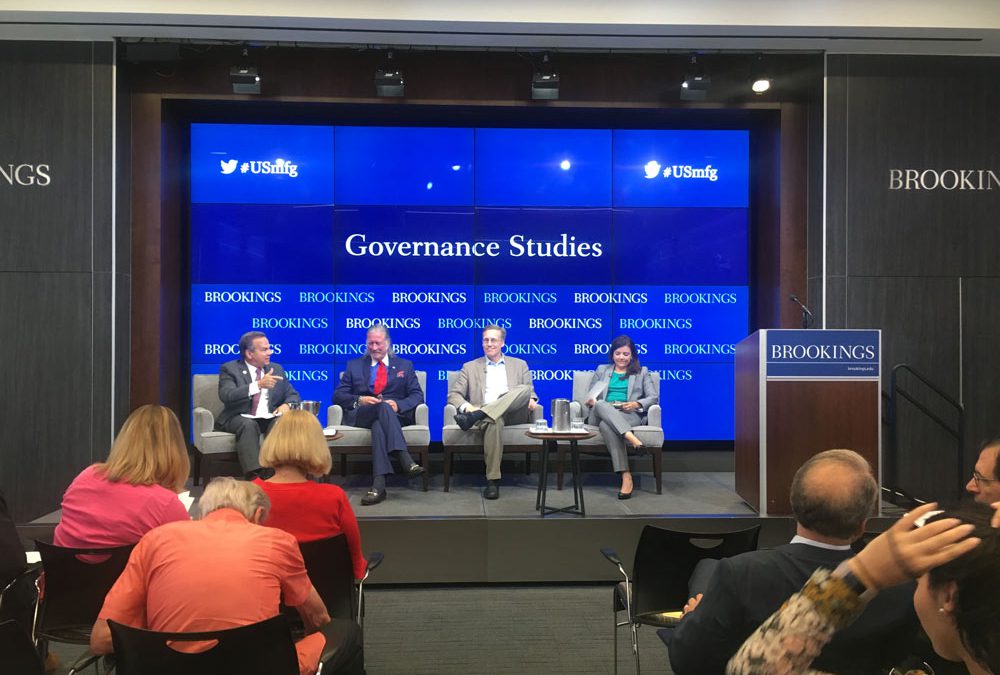WASHINGTON-The lack of a clear U.S. trade policy is forcing American manufacturers to slow growth plans, especially because of the uncertainty over how nations may respond to President Donald Trump’s protectionist rhetoric, business leaders said Thursday during panel presentations at the Brookings Institution.
The public policy think tank’s annual manufacturing forum in Washington, D.C., featured discussions from speakers that included Rep. David Cicilline, D-R.I., with many sessions centered on the role of American commerce during the Trump presidency.
“The U.S. policy position, or the lack of clarity in what direction the U.S. is going in, is having ripple effects across every aspect of our operation and how other countries are self-positioning to take advantage of the opportunity that the U.S. has created for them,” said Mario Rebello, managing director of government relations at Lenovo. “This period of waiting for clarity is actually forcing us to slow down, not only in our industry, but across the board.”
Michelle Drew Rodriguez, manufacturing leader at the Deloitte Center for Industry Insights, sat on Rebello’s panel. She emphasized the importance of Mexico and Canada in bolstering manufacturing in North America.
“By 2020, for the first time ever, global executives are predicting the U.S. will move up to first place [in global manufacturing competitiveness], but it’s strongly supported by Mexico and Canada,” Drew Rodriguez said. “You can’t just look at U.S. policy in a vacuum, you have put it all in context.”
She said American manufacturers need “a clear, concise and stable policy landscape that will increase American competitiveness and foreign domestic investments overall.”
Rebello said companies need an incentive to bring manufacturing stateside from foreign locations, which was a key Trump campaign promise.
One important incentive would be to reduce the “skills gap” — the lack of skilled labor supply for manufacturing companies, panelists agreed.
“We make decisions on where to move manufacturing and where to move production based on talent,” Rebello said.
In an earlier panel, Cicilline told the Brookings audience that students, families and educators should view manufacturing as a dynamic and exciting industry.
Drew Rodriguez said results from a Deloitte study released Thursday show how important that familiarity can be.
“Once students are more familiar with manufacturing, they’re twice as likely to enter a career,” she said.
Mark Muro, a senior fellow at the Brookings Institution, praised the Trump administration’s apprenticeship programs in the manufacturing industry, but said he thinks many of the manufacturing jobs Trump promised will not return.
“Instead of viewing disruption and adjustment as a one-time emergency — say your company goes out of business, or a coal community loses the mine, or the base in your region closes — we should be thinking about this more holistically,” Muro said.


